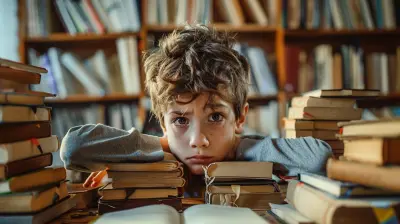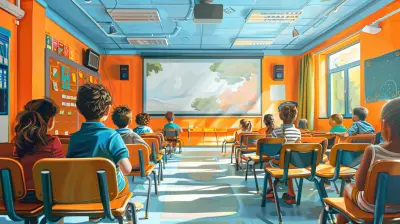The Power of Play: Encouraging Creative Expression in Early Education
29 June 2025
Introduction
Ever watched kids at play? Their little hands building castles, their minds weaving stories, and their laughter filling the air—it's nothing short of magical. But beyond the fun and games, play is actually a powerful tool for learning.
In early education, play isn't just about keeping children entertained. It’s a gateway to creativity, problem-solving, and emotional growth. It’s how kids make sense of the world around them. But in today’s fast-paced, tech-driven era, are we giving play the attention it truly deserves?
Let’s dive into the power of play, how it fuels creative expression, and why it should be a core part of early education. 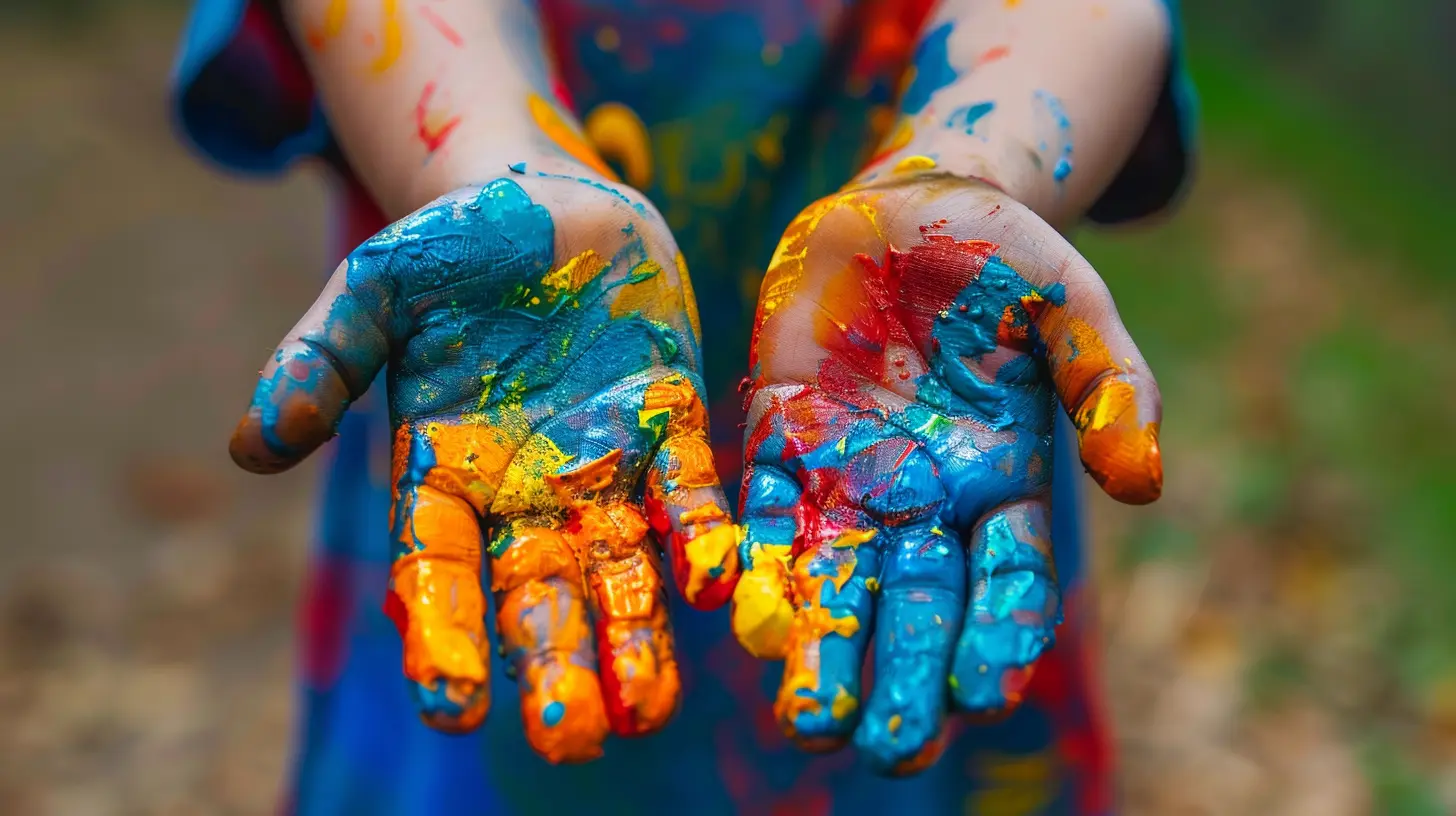
Why Play Matters in Early Childhood Education
Play is often dismissed as just a way for kids to pass the time. But in reality, it’s a child’s most natural way of learning. Whether through storytelling, role-playing, or building block towers, kids are constantly making connections, experimenting, and expanding their understanding.Here’s why play is essential:
- Boosts Creativity – Unstructured play encourages kids to think outside the box, invent stories, and express themselves in unique ways.
- Enhances Problem-Solving Skills – When kids encounter challenges during play, like figuring out how to balance blocks or resolve conflicts in a game, they develop critical thinking skills.
- Develops Social Skills – Group play helps children learn cooperation, communication, and empathy.
- Supports Emotional Growth – Play allows children to express feelings, work through fears, and build confidence.
Now, let’s explore the different types of play and how they encourage creativity in young minds. 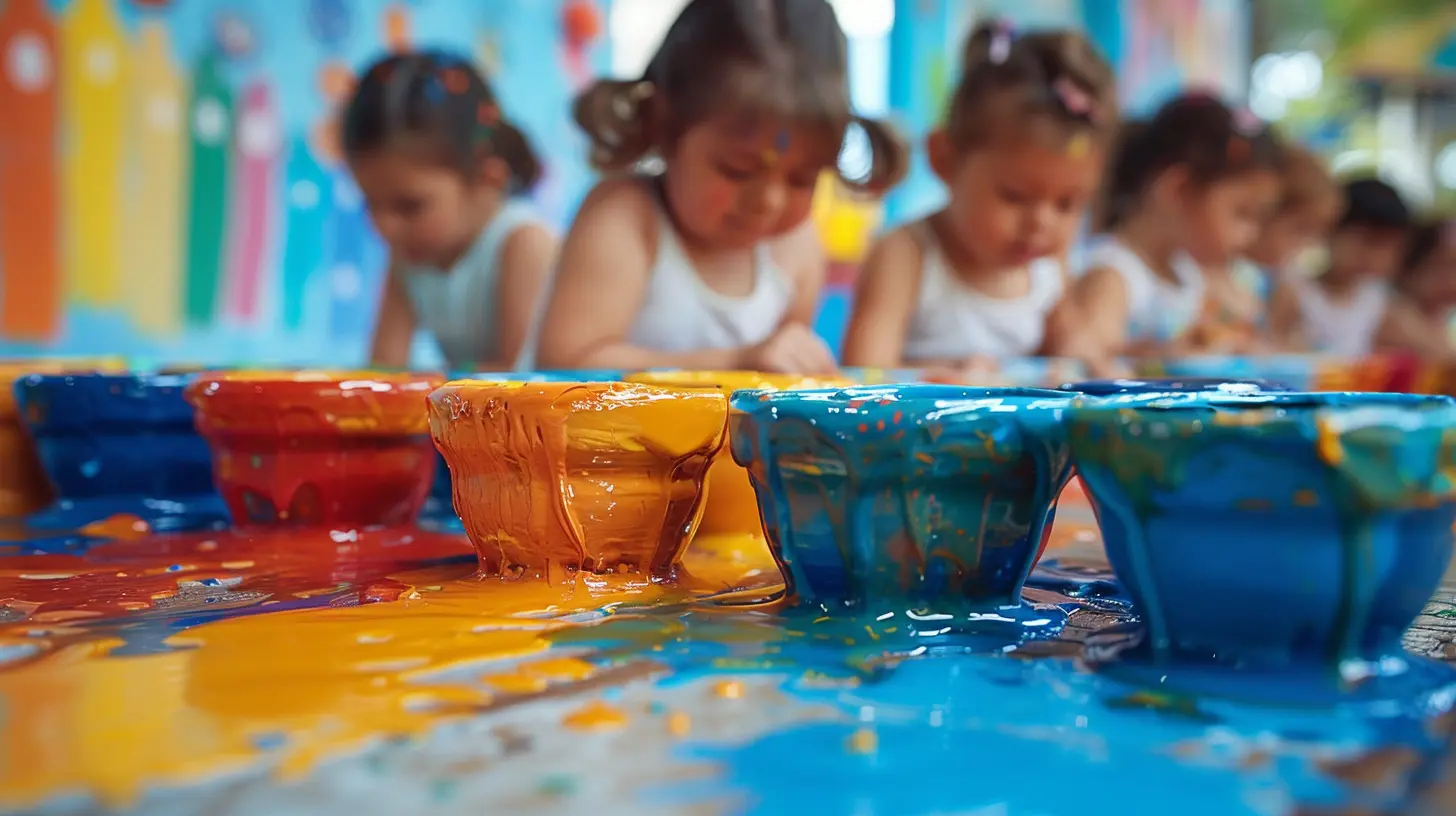
Types of Play That Encourage Creative Expression
Not all play is the same. Different types of play contribute to different aspects of a child's growth. Here are some of the most effective ones for fostering creativity:1. Imaginative Play (Pretend Play or Role-Playing)
Ever seen a child pretend to be a superhero, a doctor, or a chef? That’s imaginative play in action. It allows children to step into different roles, explore emotions, and create stories from their imagination.- How It Helps: Encourages self-expression, boosts storytelling skills, and strengthens problem-solving abilities.
- Examples: Playing house, acting out fairy tales, or setting up a pretend grocery store.
2. Artistic Play (Drawing, Painting, Crafting)
Give a child a crayon, and they’ll turn a blank paper into a masterpiece. Artistic play helps kids visually express their thoughts and emotions, even before they develop strong verbal skills.- How It Helps: Develops fine motor skills, teaches color recognition, and nurtures self-expression.
- Examples: Finger painting, making collages, or sculpting with clay.
3. Music and Dance Play
Ever noticed how toddlers naturally sway to music? Music and movement are powerful ways for kids to express themselves. Whether it's banging on a toy drum or twirling around the room, music-driven play enhances sensory and emotional development.- How It Helps: Improves rhythm, coordination, and confidence in self-expression.
- Examples: Singing nursery rhymes, creating homemade instruments, or free dancing.
4. Construction Play (Building and Creating)
Building blocks, LEGO, and even simple cardboard boxes—kids love transforming objects into something new. This type of play enhances spatial awareness, logical thinking, and creativity.- How It Helps: Strengthens problem-solving skills, enhances spatial intelligence, and encourages trial and error.
- Examples: Building a fort, stacking blocks, or designing a pretend city with household items. 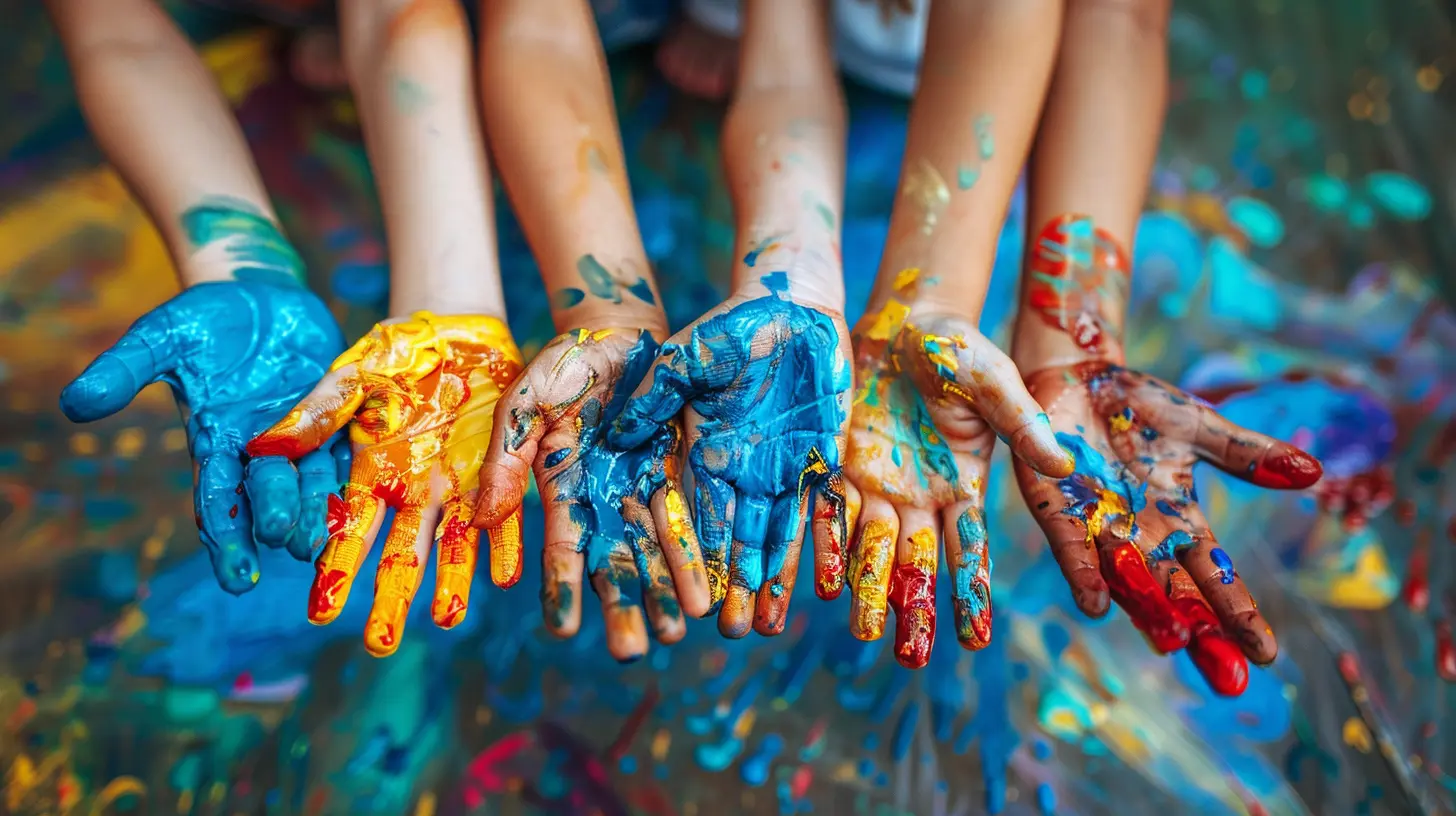
How Play Enhances Cognitive Development
Beyond creativity, play significantly contributes to cognitive growth. When children experiment, explore, and take risks in a safe environment, they develop essential skills that will benefit them for life.- Language Development – During play, kids naturally expand their vocabulary and improve communication skills.
- Memory Improvement – Games that involve storytelling or sequencing (like "Simon Says") help enhance memory.
- Logical Thinking – Puzzles, board games, and strategy-based play foster critical thinking and decision-making abilities.
In short, play transforms simple activities into meaningful learning experiences. 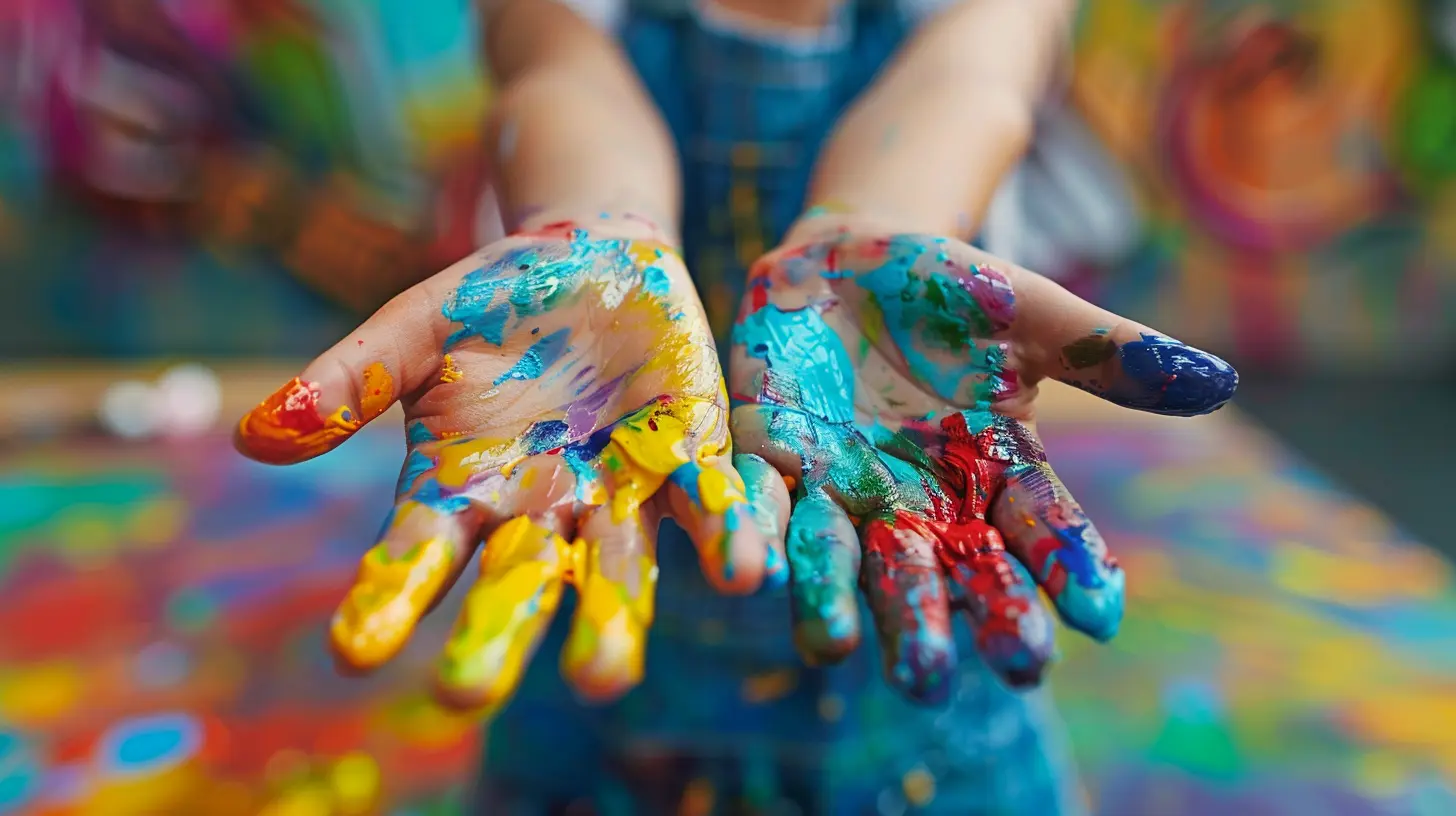
The Role of Educators and Parents in Encouraging Play
While kids are naturally drawn to play, it’s up to parents and educators to create an environment that nurtures it.1. Create a Play-Supportive Environment
- Design spaces with open-ended toys, art supplies, and opportunities for role-playing.- Encourage outdoor play to inspire curiosity and movement.
2. Balance Free Play and Guided Play
- Let kids take the lead in free play—this boosts independence and creativity.- In guided play, introduce concepts subtly (e.g., asking "What happens if…?" to spark curiosity).
3. Limit Screen Time
- While digital games can be engaging, too much screen time limits hands-on creative play.- Instead, encourage activities like reading books, making crafts, or playing outdoors.
4. Join the Fun
- Play with kids! Whether it’s building a castle or acting out a silly story, engaging with them enhances their confidence and creativity.By prioritizing play, we help children develop the essential skills they need to succeed in school and beyond.
Overcoming Barriers to Play in Education
Despite its benefits, play is often undervalued in many educational settings. With an increasing emphasis on structured learning and standardized testing, playtime is getting squeezed out of the schedule.Common Barriers to Play
- Academic Pressure: Schools prioritize worksheets and drills over hands-on learning.- Lack of Resources: Limited play materials or playground space can restrict opportunities.
- Overreliance on Technology: Digital entertainment often replaces hands-on creative play.
How to Bring Play Back into Learning
- Incorporate play-based learning into daily lessons (e.g., using storytelling for math problems).- Advocate for more recess and unstructured playtime in schools.
- Encourage parents to emphasize play at home rather than focusing solely on academics.
The truth is, play and learning aren’t separate—they go hand in hand. When kids are given the freedom to explore, they develop a love for learning that lasts a lifetime.
Conclusion
Play isn’t just a pastime—it’s a powerful educational tool that fosters creativity, emotional well-being, and cognitive development. From imaginative storytelling to hands-on building, every playful moment shapes a child’s future.As parents, educators, and caregivers, we have a responsibility to ensure that play remains a fundamental part of childhood. Because when kids play, they’re not just having fun—they're growing, learning, and expressing their limitless potential.
So, let’s make play a priority in early education. After all, the best learning happens when kids don’t even realize they’re learning.
all images in this post were generated using AI tools
Category:
Creativity In EducationAuthor:

Eva Barker
Discussion
rate this article
2 comments
Nolan Stewart
Play sparks imagination and growth—nurturing creativity is essential for young learners’ development!
December 28, 2025 at 10:08 PM

Eva Barker
Thank you! I completely agree—play is a vital ingredient for fostering creativity and holistic development in young learners.
Hannah McGinn
This article brilliantly highlights the essential role of play in early education. Encouraging creative expression fosters not only learning but also emotional development, making it vital for young children’s growth.
July 7, 2025 at 4:16 AM

Eva Barker
Thank you for your thoughtful comment! I'm glad you found the article emphasizes the importance of play in fostering both learning and emotional development in young children.

